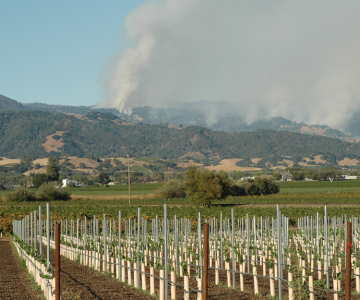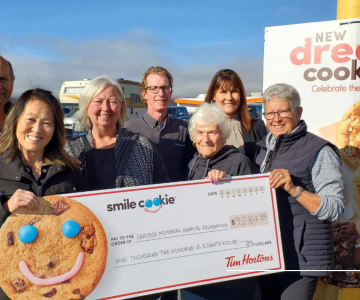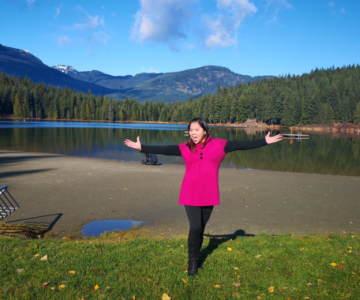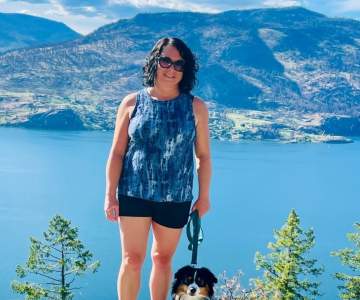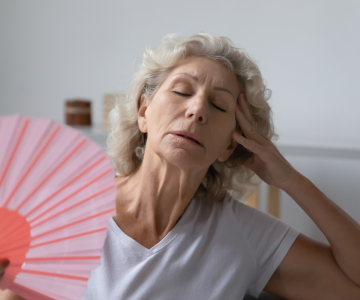Share Your Feedback
Latest Alerts
Breadcrumb
Explore Stories
Health & Wellness
The best way to protect your health from poor air quality and wildfire smoke is to reduce your exposure and seek cleaner air.
Stay indoors: Reduce time spent outdoors to protect your health.
Reduce outdoor physical activity: Refer to the Air Quality Health Index and decrease physical exertion outdoors in when air quality is poor
Consider wearing a well fitted respirator if you cannot access cleaner air: Use a well fitted respirator (e.g., N95, KN95) properly to reduce exposure to particulate matter in smoke.
Activate medical management action plans: Ensure that your plan to self-manage any chronic diseases (e.g., respiratory and cardiovascular diseases) are in place and up to date, and that adequate rescue medications are available.
Use a home clean air shelter: Spend time in a room in your home with a portable air cleaner with HEPA filtration to reduce smoke exposure.
Community & Culture
Foundations in the Interior region raise funds that support medical equipment, care needs, and innovative local initiatives in their communities. Each organization includes respected community leaders, volunteers and staff who are passionate about meeting the needs of patients and families in Interior Health. Thanks to the generosity of their supporters, we all have a stronger health system.
In this next story of our series on the incredible health-care and hospital foundations throughout our region, we interviewed Tammy Tugnum, president, Cariboo Memorial Hospital Foundation.
Community & Culture
Name: Manilyn Dantes (she/her/hers)Job Title: Care Aide / Health-Care AssistantYears of Service: 10Worksite: Cottonwoods Care CentreCommunity: Okanagan/KelownaAncestral Territory: SyilxFavourite Quote / Advice to live by: Be the reason someone smiles today. Never stop learning because life never stops teaching.
Manilyn Dantes is a care aide / health-care assistant born and raised in the Philippines. She’s been working and living in the Central Okanagan for more than 10 years.
Manilyn has grown her career at Cottonwoods Care Centre in Kelowna supporting residents and assisting with daily activities that encourage maximum independence.
Health & Wellness
When a natural disaster such as a wildfire or flood strikes, people are often forced to stay in their homes or evacuate immediately.
“Everyone should make an emergency plan for their households—that includes an evacuation plan for themselves, their family members and their pets—and practice that plan,” says Anne Morgenstern, director, Emergency Response with Interior Health. “Many people feel that they will be able to throw a plan together in the moment or rely on family or other supports.
“But the reality is that these events are very stressful and dynamic and require quick decisions and actions. People can easily become overwhelmed, which can result in delays or missed information that can leave them in dangerous situations.”
Emergency preparation is particularly important for seniors, who may need extra assistance in evacuating from their residence.
Learn how you can take steps to prepare for a natural disaster or emergency evacuation. Some of the information listed below comes from Prepared BC, B.C.’s emergency preparedness education program.
“Caring for yourself and/or for a loved one can be hard - don’t let a natural disaster and evacuation add to this. Let’s be prepared,” adds Joanna Harrison, Executive Director of Seniors Specialized Care Services with Interior Health.
Read on to learn how seniors can prepare for a natural disaster or emergency evacuation. Some of the information listed below comes from Prepared BC, British Columbia’s emergency preparedness education program.
Community & Culture
Name: Colette Mayne (she/her/hers)Job Title: Mental Health and Substance Use (MHSU) ClinicianYears of Service: 7Worksite: Kelowna Mental Health and Substance UseCommunity: KelownaAncestral Territory: Syilx NationFavourite Quote / Advice to live by: “Be the change you wish to see in the world.” — Mahatma Ghandi
With a deep passion for community work and helping vulnerable people, Colette Mayne says witnessing her clients take steps to live healthier, more balanced lives is the most rewarding part of her role.
"Kindness, empathy and compassion can go along way when we are collaborating with vulnerable people. The world needs more of this right now," says Colette. "It's important to connect with others and hold space for those that need it, as we all have things that we are dealing with under the surface. Even us health-care professionals are not immune to having tough times."
The mental health and substance use (MHSU) clinician, who has been with Interior Health (IH) for seven years and in the counselling field for nearly 20, is part of an Integrated Treatment Team (ITT) in Kelowna that supports individuals with substance use disorder.
“We support people at the community level or in their homes who have a moderate to severe substance use disorder and are at the highest risk of drug poisoning due to being recreational users," she says.
“Most of the people we support in our program are working professionals, business owners and community members, and have families. Having access to discreet substance use supports is of the utmost importance to those we support.”
Colette says she is continually learning in her role and much of that comes from her daily interactions.
“I have found that my most profound and valuable learning experiences have been from the people we support,” shares Colette.
Health & Wellness
B.C. is experiencing higher annual summer temperatures and more extremely hot days. Everyone can benefit from planning and preparing for extreme heat.
Prolonged periods of extreme heat can be dangerous, especially for those who don’t have access to a cool indoor environment, or who are unhoused or unsheltered. Extreme heat can start with little warning and can build over multiple days, as we saw throughout the Interior region the past few years. Most heat-related illness occurs indoors in spaces without air conditioning.
Related Stories@IH: Summer Safety: Tips to protect yourself from summer heat
Community & Culture
Welcome to the Meet Your Recruiter series, where we bring you closer to the dedicated professionals behind Interior Health's recruitment team. In this series, you'll have the opportunity to get to know the recruiters who play a vital role in attracting and selecting talented individuals to join our dynamic health-care team.
Discover their passions, expertise and invaluable insights as they share their experiences and shed light on the exciting opportunities that await you within Interior Health. As one of the largest health-care authorities in British Columbia, we are committed to providing exceptional care to the communities we serve. These are the people who help us fulfill this commitment.
Community & Culture
Name: Donna Jeri-Leon (she/her/hers)Job Title: Specialist, Clinical RecruitmentYears of Service: 26Worksite: Community Health & Services Centre (Remote)Community: KelownaAncestral Territory: Syilx/OkanaganFavourite Quote / Advice to live by: “It is what it is, but it will become what you make of it.” – Pat Summitt
Donna Jeri-Leon is a clinical recruitment specialist that works to attract top notch health-care professionals to join Interior Health (IH). Born in Cape Breton Island, Nova Scotia, Donna moved to Kelowna in 1997 and has been working at IH ever since.
Health & Wellness
Climate change is a global issue affecting social, economic and environmental factors that determine our health: clean air, safe drinking water, secure and safe places to live, and income and livelihood. Climate change is also strongly linked to health inequities: communities and populations that are most vulnerable to the impacts of climate change are often those that contribute least to the problem.
First Nation communities are uniquely affected by climate change due to colonial systems, such as the imposed land reserve system. The reserve system fragmented large traditional territories into small parcels of land that were often established in areas that were not desirable to colonial governments, such as on floodplains or in areas downstream from major industrial developments.
-
Load More
Showing 189 of 786
Sign up for email updates
Receive news, alerts, public service announcements and articles right to your inbox.


